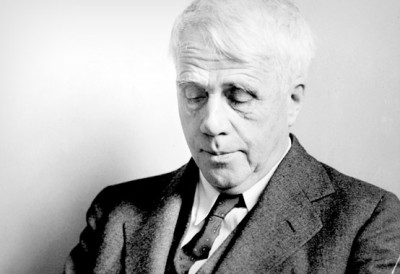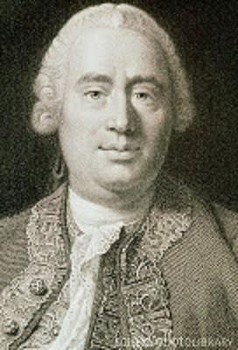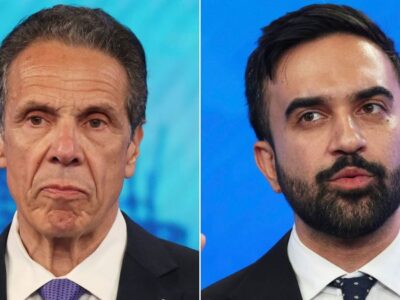Is Laurence Tribe a Sellout?
Actually, No

Ann’s excellent post concerning Jody Freeman and Richard Lazarus’ evisceration of Laurence Tribe raises an important question: why on earth would Tribe make such patently absurd arguments? Ann delicately suggests that the money Tribe is getting from fossil fuel interests may have “addled his judgment.”
I’m not so sure. Obviously, we can’t put the man on the couch, but I have a hard time believing that Tribe is just doing this for the money: he’s got plenty, so much so that the 1st Circuit had to rule once that his charges were exhorbitant for attorney’s fees purposes (so if he isn’t taking cases on contingency, he can just laugh his way to the bank). Ann’s suggestion is a little more subtle: once an attorney takes a case, he or she tends to psychically invest in it, so that he or she comes to believe in the justice of the struggle. Perhaps, but in this case, Tribe didn’t have to take the case in the first place.
Instead, we might look to the great American poet Robert Frost, who once acidly defined a liberal as “a man too broadminded to take his own side in a quarrel.” That’s Tribe. He has long tried to cultivate a reputation as someone so incredibly fair-minded that even those on the other side should take his views seriously, often going out of his way to downplay or even deny the impact of politics on his constitutional theory.
Someone with such a self-conception might find it irresistible to become the paladin of conservatives on a high-profile issue, especially since that issue is one where he lacks any particularly ideological commitment. See? I am so incredibly fair-minded that I will take the side of conservatives and get attacked by my own side! I don’t think that this is necessarily even conscious; it just seems to the subject as the “right thing” to do.
The irony is that Tribe’s probably subconscious attempt to burnish his reputation has done exactly the opposite, as Freeman and Lazarus’ response demonstrates. He wants so badly to rise above the fray that he winds up sinking below it. As David Hume remarked:
It is natural for men to persuade themselves that their interest coincides with their inclination.
Desperately attempting to show fair-mindedness might simply result in demonstrating soft-headedness.

Reader Comments
5 Replies to “Is Laurence Tribe a Sellout?”
Comments are closed.







I have been an expert witness in a number of cases and have often noted silly arguments by opposition attorneys (and occasionally those I have worked with) wondered.
I am not convinced that the fact that making these arguments usually increases billing hours doesn’t have any role, but it does seem that lawyers becoming emotionally invested in their position has a larger role. Perhaps the duty to present a vigorous defense has a role in this as well.
This is certainly something I worry about myself in formulating and supporting my own opinions, since engineering ethics have a strong element of public duty and technical accuracy but no equivalent overriding duty to their client, but in fact the opposite. (See for example “The Calling of an Engineer”.) So far I have been able to at least fool myself, but it is easy to justify this kind of thinking and I think you are correct in attributing this very human tendency to Lawrence Tribe.
Worth reviewing here is Tribe’s April 29, 2005, letter to Justice Breyer and expanded “open letter” published in Green Bag reporting his abandonment of a two-volume third edition of the constitutional law treatise. There he laments the inability of the treatise as a genre “to be true to this moment in our constitutional history–to its conflicts, innovations, and complexities.” He is frustrated by “profound fault lines … at the very foundations of the enterprise…” and their deleterious effects on his “attempt at a synthesis of some enduring value…” And: “When such fissures loom large enough, what once looked like a synthesis becomes at best a new thesis.” So, for the academic project he clearly wants to maintain a high-altitude, inclusive view of the terrain, albeit with the ultimate goal of mapping it coherently and helpfully. But he also accuses the Congress that enacted the bill that kept Terri Schiavo on life support of “shamelessly opportunistic appeasement of their ‘base.'” Thus, he isn’t opposed to taking sides, which is of course what he’s doing against the EPA in court. Still, I find it hard to imagine that his subconscious appetite for synthesis would trump his conscious aversion to shameless opportunism.
You ask the question: “why on earth would Tribe make such patently absurd arguments?”
Rejecting Tribe’s arguments as patently absurd doesn’t make it so. Joining in with “Ann” and others to denigrate the man and his arguments, without analyzing them, does not present anything to evaluate.
Treating Lawrence Tribe as needing your psychoanalysis, shows a lot of disrespect for a man who has many important accomplishments.
The plot thickens: http://today.law.harvard.edu/why-epa-climate-plan-is-unconstitutional/ Not having time to piece all of this together, I’ll simply point out that Title 42 of the U.S. Code is not among those titles enacted by Congress as positive law. Where it deviates from the Statutes at Large, the Statutes prevail.
I agree with Paul Grant (letter, above) and, like Dean Rowan (letter, also above) I also commend the reader to the very substantive 5-entry exchange between Professor Tribe and two of his colleagues found here: http://today.law.harvard.edu/topic/constitutional/
I have read it all (current through March 22) and think that Tribes’ principle statutory argument is quite strong. I regret to say this, because I personally wish that EPA’s regulation rested on firmer ground. One may still wish that Tribe were not assisting major emitters, and I personally do not find his 5th Amendment argument to be very compelling. But Tribe’s argument that an earlier “conforming” amendment to CAA Section 111(d) was superceded by the May 1990 Clean Air Act amendment is very strong.
Legal Planet scholars should not have derided Professor Tribe as a sellout or addled.
Dan Galpern, Attorney
Eugene, Oregon